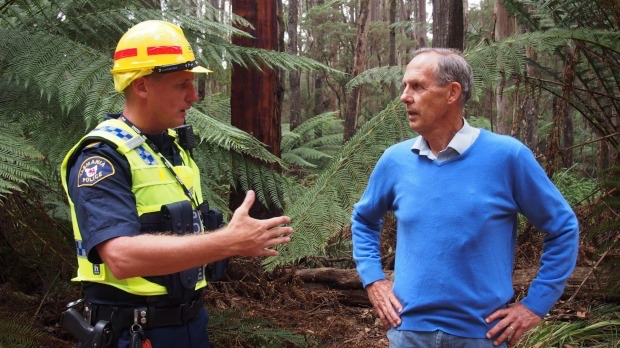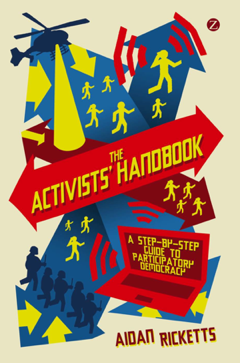- Home
- Commentary
- Navigating disinformation, uncertainty, individualism and the poison apple of conspiracy
- If nothing changes nothing will change: the Voice referendum
- What can we learn from disaster communities?
- New year, a time to embrace the uncertainty of it all
- We could be non-binary
- Adaptive resilience vs safety paternalism
- Left wing, right wing? What just happened to politics?
- Covid, class and the addiction to certainty
- Neoliberalism, the Life World and the Psychopathic Corporation
- Democracy is about our bodies, not just our minds
- What’s your motivation: is it yourself or the change you’re making?
- Mind over matter: The world of abstraction is driving us to destruction
- The real threats to our liberty and survival
- Avoiding the abyss of conspiracy theories
- The difference between a legal system and a fantasy novel
- What’s a conspiracy and what’s just common garden variety corruption?
- Unpredictability, humility and an emerging anthropandemic
- The trilemma – climate change, economic collapse, and rising fascism
- Happy New Normal for the decade ahead
- Fires, liars and climate deniers
- The race to the bottom in australian politics
- Talking about lock-on devices – an article in ‘The Conversation’
- The Ponzi scheme is teetering
- Regenerative culture a key part of the blockade experience
- Staying sane in the late Anthropocene
- Extinction Rebellion
- Major parties have failed on climate, it’s time to rebel.
- Elections In The Late Anthropocene
- It is the Greens that are defeating the Nats and it’s all about your preferences
- Australia’s powerhouse of democracy and innovation is in the Northern Rivers
- Is identity politics a problem for the left?
- The climate emergency and the awful state of Australian politics
- Democracy and rights under threat in corporate police state
- Liberty, freedom and civil rights? Do any of us understand these things anymore.
- The forest wars are back, time to mobilise
- …more commentary
- Workshops
- News & Events
- Media
- A Flood of Emotions – Sydney Ideas Event
- Participatory democracy in the COVID era – SCU podcast
- Activism educator Aidan Ricketts explains how and why protests can be peaceful
- Bob Brown Is Taking “Shocking” Anti-Protest Laws To The High Court
- Anti protest laws could arrest nannas, seize tractors
- “They blinked first”
- Colin Barnett quick to protest against ‘activism degrees’ – The Australian, 16/10/2014
- ‘Degrees in activism’ put brake on growth – The Australian, 15/10/2014
- Magistrate throws out vexatious police case against CSG protesters
- Outrage over school PR ‘by stealth’- The Northern Star
- CSG clash a certainty
- Communities use new tactics
- Gas group attacks lecturer
- …more media
- Activist Resources
- Reviews
Bob Brown Is Taking “Shocking” Anti-Protest Laws To The High Court
 By Thom Mitchell. Reprinted from New Matilda on 10 March, 2016.
By Thom Mitchell. Reprinted from New Matilda on 10 March, 2016.
Former Australian Greens leader Bob Brown has launched a High Court challenge to Tasmania’s anti-protest laws – labelled “shocking” by a United Nations official – arguing that they breach the right to freedom of political communication implied in the Australian Constitution.
The case will likely be watched closely by other states, including the NSW Government, which is seeking to introduce similar anti-protest laws, and the West Australian government, which is expected to pass laws slammed by three separate United Nations Special Rapporteurs in coming weeks.
As Brown wrote for New Matilda at the time, he was arrested under the anti-protest laws for peacefully demonstrating against clear-fell logging of the Lapoinya Forest in January this year. He is due to face Hobart Magistrates Court for that act of civil disobedience tomorrow.
Challenging these same laws, Hobart solicitor Roland Browne filed a writ yesterday on behalf of the long-time environmental campaigner and former Greens leader and Tasmanian Senator. Conservative Premier Will Hodgman’s government, as the defendant, had a ‘notice of proceedings’ delivered to it this morning.
The laws passed through the Tasmanian Parliament in late 2014. They prohibit protests, whether on private or public property, that hinder access to business premises or disrupt business operations.
Aidan Ricketts, a law lecturer specialising in protest activities and activism at Southern Cross University, told New Matilda the legislation is “very vulnerable” to being found unconstitutional.
The bill furnishes police with extraordinary pre-emptive powers to ‘move-on’ a person they believe is about to commit an offence, and these powers extend to whole groups as well as individuals. It is then an offence to return to the area within four days.
The Act also empowers police to demand proof of identity, with protestors who fail to comply faced with a $2,000 on-the-spot fine. In addition, police can use “reasonable force” to move protestors on without requiring a warrant.
Where a person or organisation disobeys a police direction, fails to leave a business premises when directed to do so, or returns to the business premises within four days, an officer may issue an on-the-spot fine. Unless contested, these fines can range up to $280 for individuals, and $1,400 for organisations.
But if protestors challenge the fine they’re given, penalties can escalate drastically in court.
If a protestor chooses to have the matter heard as an indictable offence before a judge and jury, they can ultimately be faced with fines of $10,000 for individuals, or four years prison for a second offence. Organisations that commit the same crime can land themselves with a $100,000 bill.
The maximum penalties for protestors who choose to have their case heard summarily – or without a judge and jury – is lower, at $5,000 or 12 months in prison.
However the steepest penalties under the Act are reserved for protestors who are found by a judge and jury to have caused damage to a business: This can attract a fine of $50,000 or five years in prison.
The laws were even more severe when the Hodgman government first introduced them, but they were watered down as they passed through the Tasmanian Parliament, and after they were slammed by three United Nations Special Rapporteurs. One element of the legislation that was staunchly criticised, however, did make it into the Act.
The UN Special Rapporteur on Human Rights Defenders, Michel Forst said it is “shocking” that the laws “specifically target environmentalists” by singling out industries like forestry, agriculture and mining.
In his second reading speech, the Tasmanian Resources Minister Paul Harriss said “the central objective of the government is to ensure wealth creating businesses can develop and grow free from disruptive protest action that prevents them from operating on a normal commercial basis”.
The argument that will now be had in the High Court is whether that objective was carried out at the expense of civil rights, which the nation’s highest court has previously affirmed.
A person can only be found guilty of the principle offences under the Act if they fall within the definition of a protestor, which is defined by the legislation as someone who engages in an activity “for the purposes of promoting awareness of or support for an opinion, or belief, in respect of a political, environmental, social, cultural or economic issue”.
Ricketts ssaid that on his reading “this means that political communication itself has specifically been included as an essential element of the offence, or at least an essential precondition to the exercise of a power to give the person directions under the Act”.
In other words, you can only be found guilty under the act if the reason you breach it is because you’re promoting an opinion “in respect of a political, environmental, social, cultural or economic issue”.
“I find it very difficult to see how this is not, at its very core, a law that targets political communication itself,” Ricketts said. “The only remaining question for the Court would be whether it is a reasonably justifiable infringement of that implied freedom. I certainly don’t believe that it is,” he said.
With Brown’s High Court challenge now in play, we’ll soon known.
Recent Posts
- Navigating disinformation, uncertainty, individualism and the poison apple of conspiracy
- If nothing changes nothing will change: the Voice referendum
- What can we learn from disaster communities?
- New year, a time to embrace the uncertainty of it all
- We could be non-binary about a lot more than gender
I like these sites
Community Organisations
- Code Green Tasmania
- CSG Free Northern Rivers
- Friends of the Earth Melbourne
- Generation Alpha
- Huon Valley Environment Centre
- Lock the Gate Alliance
- Nature Conservation Council NSW
- North Coast Environment Council
- North East Forest Alliance
- Plan to Win
- Rainforest Information Centre
- Save our Foreshore
- Still Wild Still Threatened
- The Change Agency
- The Wilderness Society








